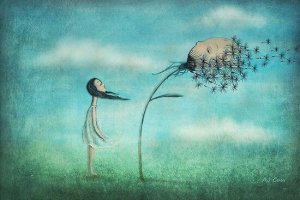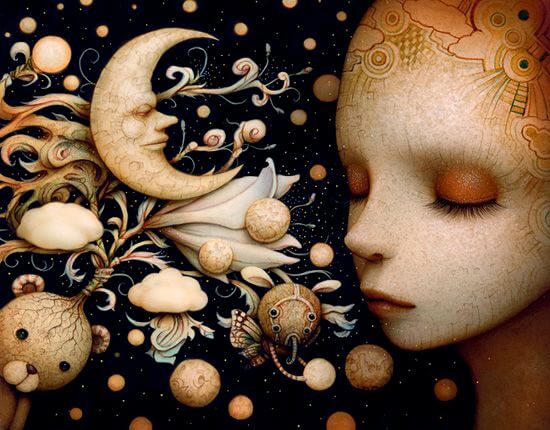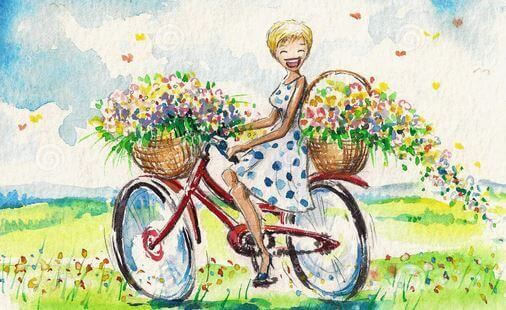Discover Your Inner Child

We use the term “inner child” to refer to the image we have of ourselves, in regards to our feelings, values, and recognition of abilities. It’s also our ability to discover feel satisfaction with being who we are.
Our inner child is developed throughout our childhood and endures throughout our lives. It arises in moments of suffering, of pain or trouble. Generally, we feel it most in situations of conflict or emotional blockage, especially when those things were not resolved in our childhood. But not everything is lost or unresolved. We can recover our internal wellbeing and rebuild the image that we have of ourselves.
Childhood, a stage of exploration
During childhood our own self-concept is developed. In other words, it is when we create the very image that we have of ourselves. This is largely based on what our parents and the adults in our lives project on us, and also through our experiences and the circumstances that we encounter.

When we are young, the adults in our lives are like mirrors. In them, we see for the first time who we are. Through them, we are able to recognize ourselves and know who we are. Sometimes, even when our parents or guardians hope to give us the best they can, we don’t necessarily receive it. When we are children, we often don’t know what it is we need. We don’t know how to ask for it, and our parents or other adults can’t always tell exactly what it is.
Therefore, we can grow up with certain emotional gaps, certain pain and sadness, and even childhood trauma. This trauma can be unconscious, suppressed, and leave a mark, even if we don’t even know it is there.
Losing childhood
When childhood is not a happy time, we grow up emotionally unsatisfied. We grow into adulthood without resolving our childhood conflicts. This may be because they are subconscious, but that feeling of personal dissatisfaction will be dragged from childhood into adulthood.
Frequently, when we enter adulthood, we don’t remember the different parts of our childhood. It is like we have selective amnesia. This can be a symptom of unresolved internal conflicts.
We will have lost our inner child. We will be unable to discover a sense of internal satisfaction. When we become adults, we lose all that innocent hope that existed in childhood. We don’t have projects; we don’t have dreams. We also are no longer motivated to play and use games as a distraction or way to pass the time. So, life becomes apathetic, serious, sad, and full of discontent.
“It is with play, and only with play, that the child or the adult as individuals are capable of being creative and using their entire personality. Only upon being creative can the individual discover themselves.”
-Donald Winnicott-
The inner child of all adults
Upon reaching adulthood, after having had a satisfying childhood, and without having any kind of disorder, the child we were will continue to be present in our being. That child will appear in moments of fun. That child will peak out in moments of childish hoping and dreaming. That child will find enjoyment in the littlest things, and will develop through playing as an adult. This is also a way to keep youthful play present in adulthood.

We could say that despite all the problems that come with adult life, life itself can continue to be fun, surprising, and full of passion and happiness. Just because we are now adults does not mean life must carry on without fun, and without dreams.
“I look at you, I look at you without getting tired of looking, and what a beautiful child I see peaking through your eyes.”
-Gabriela Mistral-
Discover your inner child
To discover your inner child means to accept and embrace who you are. You must value yourself and love yourself. Recognize your abilities and your capacity to do and discover new things, and to continue dreaming. In doing all of this, you can rebuild your personal satisfaction and discover true happiness.
The following steps can help you rediscover your inner child:
- Visualize the child you were and imagine yourself caring for and loving that child.
- Remember what you liked and what interested you as a child. Allow yourself those likes and interests now, as an adult. Allow yourself to enjoy those moments, and be transported back to your childhood.
- Play, keep your dreams alive, and explore the little details of them. Do what you used to like to do as a child, but adapt the activities to your adult life.
- Smile, laugh, accept, and forgive the people from your childhood who may have caused you pain.
- Imagine what you would have liked to hear as a child. Express those thoughts and feelings for yourself, as an adult.
- Listen to your heart and what you long for. Keep these desires in mind.
- Look out for yourself, take care of yourself, love yourself, and value yourself.
“We should listen to the child we once were and that still exists within us. That child understands through magical moments.”
-Paulo Coelho-
This text is provided for informational purposes only and does not replace consultation with a professional. If in doubt, consult your specialist.








